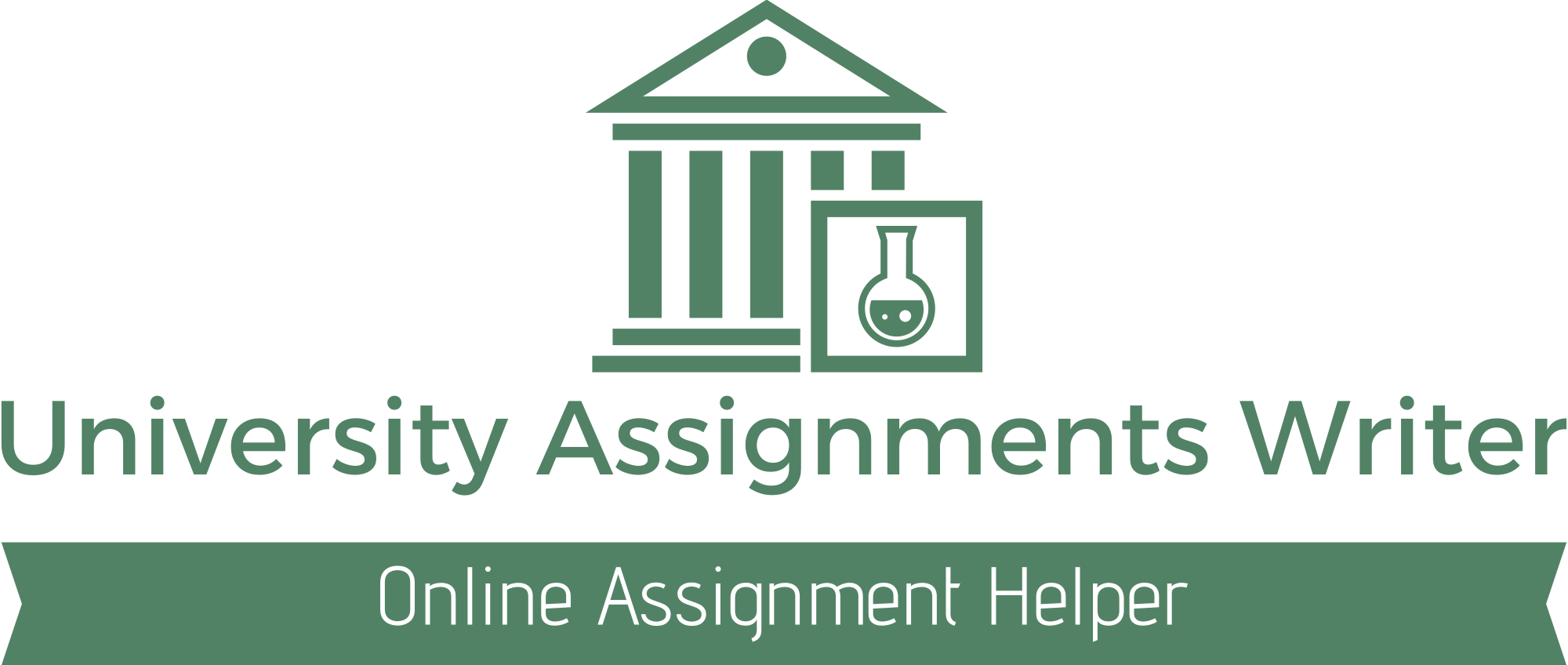Use the PRAC 6635 Clinical Skills Self-Assessment Form to complete the following
Use the PRAC 6635 Clinical Skills Self-Assessment Form to complete the following
To prepare:
- Review the clinical skills in the PRAC 6635 Clinical Skills List document. It is recommended that you print out this document to serve as a guide throughout your practicum.
- Review the “Developing SMART Goals” resource on how to develop goals and objectives that follow the SMART framework.
- Download the PRAC 6635 Clinical Skills Self-Assessment Form to complete this Assignment.
Use the PRAC 6635 Clinical Skills Self-Assessment Form to complete the following:
- Rate yourself according to your confidence level performing the procedures identified on the Clinical Skills Self-Assessment Form.
- Based on your ratings, summarize your strengths and opportunities for improvement.
- Based on your self-assessment and theory of nursing practice, develop three to four (3–4) measurable goals and objectives for this practicum experience.
Include them on the designated area of the form.
Expert Answer and Explanation
PRAC 6635 Clinical Skills Self-Assessment Form
| Desired Clinical Skills for Students to Achieve | Confident (Can complete independently) | Mostly confident (Can complete with supervision) | Beginning (Have performed with supervision or need supervision to feel confident) | New (Have never performed or does not apply) |
| Comprehensive psychiatric evaluation skills in: | ||||
| Recognizing clinical signs and symptoms of psychiatric illness | + | |||
| Differentiating between pathophysiological and psychopathological conditions | + | |||
| Performing and interpreting a comprehensive and/or interval history and physical examination (including laboratory and diagnostic studies) | + | |||
| Performing and interpreting a mental status examination | + | |||
| Performing and interpreting a psychosocial assessment and family psychiatric history | + | |||
| Performing and interpreting a functional assessment (activities of daily living, occupational, social, leisure, educational). | + | |||
| Diagnostic reasoning skill in: | ||||
| Demonstrate knowledge of psychopathology of mental illnesses through discussion for different age groups and mental illnesses |
+ |
|||
| Developing and prioritizing a differential diagnoses list | + | |||
| Formulating diagnoses according to DSM 5 based on assessment data | + | |||
| Differentiating between normal/abnormal age-related physiological and psychological symptoms/changes | + | |||
| Psychotherapeutic Treatment Planning: | ||||
| Provide psychoeducation to individuals and/or any caregivers |
+ |
|||
| Promote health and disease prevention techniques | + | |||
| Self Assessment skill: | ||||
| Develop SMART goals for practicum experiences |
+ |
|||
| Evaluating outcomes of practicum goals and modify plan as necessary | + | |||
| Documenting and reflecting on learning experiences | + | |||
| Professional skills: | ||||
| Maintains professional boundaries and therapeutic relationship with clients and staff | + | |||
| Collaborate with multi-disciplinary teams to improve clinical practice in mental health settings | + | |||
| Identifies ethical and legal dilemmas with possible resolutions |
+ |
|||
| Demonstrates non-judgmental practice approach and empathy | + | |||
| Practices within scope of practice |
+ |
|||
| Selecting and implementing appropriate screening instrument(s) and interpreting results: | ||||
| Demonstrates selecting the correct screening instrument appropriate for the clinical situation | + | |||
| Implements the screening instrument efficiently and effectively with the clients | + | |||
| Interprets results for screening instruments accurately | + | |||
| Identifies the need to refer to another specialty provider when applicable |
+ |
|||
| Accurately documents recommendations for psychiatric consultations when applicable | + |
Summary of strengths:
| During self-assessment, I found that I have strengths in various activities. One of my strengths is that I can recognize symptoms of psychiatric conditions, such as major depressive disorder, anxiety conditions, and personality diseases. However, a supervisor must be close to monitor my skills because I am a beginner. My second strength is communication. I have excellent communication skills that can help me improve in most of the competencies outlined for the practicum.
For instance, effective communication can help me collaborate well with other healthcare professionals within and outside psychiatric discipline. Lastly, I have knowledge about ethical principles that guide psychiatric practice. Some of the principles that guide this practice include privacy and confidentiality, informed consent, therapeutic relationships, and justice. I also know that I am required to think of patients’ overall wellbeing before prescribing any medication. |
Opportunities for growth:
| I have a lot of opportunities for growth because it is my first time to engage in the majority of the skills mentioned in the practicum. Currently, I cannot properly differentiate between mental health conditions and physical health problems. Some of the conditions are interlinked. For instance, a person with express pain may suffer stress. Hence, I need to develop this skill so that I can differentiate between the two conditions.
Second, I am not well vast with functional assessment. I have an opportunity to learn this skill and be competent in it by the end of the practicum. Third, I have a weakness when it comes to performing and interpreting mental and physical examination. This skill is vital when it comes to diagnosing patients. Hence, I need to develop this skill during the practicum. |
Now, write three to four (3–4) possible goals and objectives for this practicum experience. Ensure that they follow the SMART Strategy, as described in the Learning Resources.
| 1. Goal: To improve my professional or therapeutic skills by the end of this practicum.
a. Objective: To improve my collaboration skills so that I can collaborate with multi-disciplinary teams to improve clinical practice in mental health settings by the end of the practicum. b. Objective: Improve my knowledge in maintaining professional boundaries and therapeutic relationship with clients and staff by the end of the practicum. c. Objective: To improve my experience in ethical and legal knowledge by the end of the practicum to help me solve ethical and legal dilemmas during clinical experience. 2. Goal: To improve my diagnostic reasoning skills by the end of the cause. a. Objective: The first objective is to have knowledge in designing and prioritizing differential diagnostic list during clinical assessment after completion of this practicum. b. Objective: Gain knowledge to differential between abnormal and normal psychological and physiological age-related signs and symptoms by the end of the practicum. c. Objective: I should be able to formulate diagnoses based on DSM 5 using assessment data collected during clinical assessment. 3. Goal: improve competence in psychiatric evaluation skills by the end of the practicum. a. Objective: I should be able to differentiable between mental and physical health problems by the end of the practicum. b. Objective: I should have knowledge to perform and interpret mental status exam after finishing this practicum course. c. Objective: I should be able to perform and interpret family psychiatric history and a psychosocial assessment by the end of the practicum. d. Objective: I should have knowledge to recognize clinical symptoms and signs of psychiatric disorders, such as major depressive disorder, anxiety disorders, and many others by the end of the practicum. |
Signature:
Date:
Course/Section:
Place your order now for a similar assignment and get fast, cheap and best quality work written by our expert level assignment writers. Use Coupon Code: NEW30 to Get 30% OFF Your First Order
Use Coupon Code: NEW30 to Get 30% OFF Your First Order

Rubric Detail
Select Grid View or List View to change the rubric’s layout.
Name: PRAC_6635_Week1_Assignment2_Rubric
Show Descriptions
Rate yourself according to your confidence level performing the skills identified on the Clinical Skills Self-Assessment Form.—
Excellent 23 (23%) – 25 (25%)
Good 20 (20%) – 22 (22%)
Fair 18 (18%) – 19 (19%)
Poor 0 (0%) – 17 (17%)
Based on your ratings, summarize your strengths and opportunities for improvement.—
Excellent 27 (27%) – 30 (30%)
Good 24 (24%) – 26 (26%)
Fair 21 (21%) – 23 (23%)
Poor 0 (0%) – 20 (20%)
Based on your self-assessment and theory of nursing practice, develop three to four (3–4) measurable goals and objectives for this Practicum experience. Include them on the designated area of the form.—
Excellent 27 (27%) – 30 (30%)
Good 24 (24%) – 26 (26%)
Fair 21 (21%) – 22 (22%)
Poor 0 (0%) – 20 (20%)
Written Expression and Formatting—Paragraph Development and Organization:
Paragraphs make clear points that support well-developed ideas, flow logically, and demonstrate continuity of ideas. Sentences are carefully focused—neither long and rambling, nor short and lacking substance. A clear and comprehensive purpose statement and introduction is provided, which delineates all required criteria.—
Excellent 5 (5%) – 5 (5%)
Good 4 (4%) – 4 (4%)
Fair 3.5 (3.5%) – 3.5 (3.5%)
Poor 0 (0%) – 3 (3%)
Written Expression and Formatting—English Writing Standards:
Correct grammar, mechanics, and proper punctuation.—
Excellent 5 (5%) – 5 (5%)
Good 4 (4%) – 4 (4%)
Fair 3.5 (3.5%) – 3.5 (3.5%)
Poor 0 (0%) – 3 (3%)
Written Expression and Formatting—APA Format: The paper follows correct APA format for title page, headings, font, spacing, margins, indentations, page numbers, parenthetical/in-text citations, and Reference List.
Excellent 5 (5%) – 5 (5%)
Good 4 (4%) – 4 (4%)
Fair 3.5 (3.5%) – 3.5 (3.5%)
Poor 0 (0%) – 3 (3%)
| Total Points: 100 |
Name: PRAC_6635_Week1_Assignment2_Rubric
RESOURCES:
American Academy of Child and Adolescent Psychiatry. (2018). CPT code training module. https://www.aacap.org/App_
Themes/AACAP/docs/clinical_ practice_center/business_of_ practice/cpt/2018_CPT_module_ revised_March_2018.pdf
American Association of Nurse Practitioners. (2019). Discussion paper: Standards of practice for nurse practitioners. https://storage.aanp.org/www/
documents/advocacy/position- papers/StandardsOfPractice.pdf
American Psychiatric Association. (2020). Coding and reimbursement. https://www.psychiatry.org/
psychiatrists/practice/ practice-management/coding- reimbursement-medicare-and- medicaid/coding-and- reimbursement
American Psychiatric Nurses Association. (2013). Population-focused nurse practitioner competencies. https://www.apna.org/files/
Councils/Population-Focused- NP-Competencies-2013.pdf Note: Review the Psychiatric Mental Health Nurse Practitioner Competencies.
HSoft?Corporation. (2020).?Meditrek: Home. https://edu.meditrek.
com/Default.html ?? Note:?Use this website to log into?Meditrek?to report your clinical hours and patient?encounters.??
International Council of Nurses. (2020). Guidelines on advanced practice nursing 2020. Author. https://www.icn.ch/system/
files/documents/2020-04/ICN_ APN%20Report_EN_WEB.pdf
The National Organization of Nurse Practitioner Faculties. (n.d.). Retrieved August 24, 2020, from https://www.nonpf.org/
The National Organization of Nurse Practitioner Faculties. (2017). Nurse practitioner core competencies content. https://cdn.ymaws.com/www.
nonpf.org/resource/resmgr/ competencies/20170516_ NPCoreCompsContentF.pdf
Walden University Academic Skills Center. (2017). Developing SMART goals. https://academicguides.
waldenu.edu/ld.php?content_id= 51901492
Walden University. (2020). College of Nursing practicum manual: Master of science in nursing (MSN) and post-master’s certificate programs. https://academicguides.
waldenu.edu/fieldexperience/ son/formsanddocuments
Walden University Field Experience. (2020a).?Field experience: College of Nursing.? https://academicguides.
waldenu.edu/fieldexperience/ son/home
Walden University Field Experience. (2020b). Student practicum resources: NP student orientation. https://academicguides.
waldenu.edu/StudentPracticum/ NP_StudentOrientation?
Walden University PMHNP PRAC 6635 Clinical Skills List
Target Patient Population: Across the Lifespan
| Clinical Skills for Students to Achieve |
| Comprehensive psychiatric evaluation skills in: |
| • Recognizing clinical signs and symptoms of psychiatric illness |
| • Differentiating between pathophysiological and psychopathological conditions |
| • Performing and interpreting a comprehensive and/or interval history and physical examination (including laboratory and diagnostic studies) |
| • Performing and interpreting a mental status examination |
| • Performing and interpreting a psychosocial assessment and family psychiatric history |
| • Performing and interpreting a functional assessment (activities of daily living, occupational, social, leisure, educational). |
| Diagnostic reasoning skill in: |
| • Demonstrate knowledge of psychopathology of mental illnesses through discussion for different age groups and mental illnesses |
| • Developing and prioritizing a differential diagnoses list |
| • Formulating diagnoses according to DSM 5 based on assessment data |
| • Differentiating between normal/abnormal age-related physiological and psychological symptoms/changes |
| Psychotherapeutic Treatment Planning: |
| • Provide psychoeducation to individuals and/or caregivers |
| • Promote health and disease prevention techniques |
| Self Assessment skill: |
| • Develop SMART goals for practicum experiences |
| • Evaluating outcomes of practicum goals and modify plan as necessary |
| • Documenting and reflecting on learning experiences |
| Professional skills: |
| • Maintains professional boundaries and therapeutic relationship with clients and staff |
| • Collaborate with multi-disciplinary teams to improve clinical practice in mental health settings |
| • Identifies ethical and legal dilemmas with possible resolutions |
| • Demonstrates non-judgmental practice approach and empathy |
| • Practices within scope of practice |
| Selecting and implementing appropriate screening instrument(s) and interpreting results |
| • Demonstrates selecting the correct screening instrument appropriate for the clinical situation |
| • Implements the screening instrument efficiently and effectively with the clients |
| • Interprets results for screening instruments accurately |

Dan Palmer is a dedicated academic writing specialist with extensive experience supporting nursing students throughout their educational journey. Understanding the unique challenges faced by nursing students who balance demanding clinical rotations, family responsibilities, and rigorous coursework, Dan provides professional assignment assistance that helps students maintain academic excellence without compromising their other commitments.
With a comprehensive understanding of nursing curriculum requirements and academic standards, Dan delivers high-quality, thoroughly researched assignments that serve as valuable learning resources. His expertise spans various nursing disciplines, including clinical practice, healthcare ethics, patient care management, and evidence-based research.
Dan’s approach combines meticulous attention to detail with a commitment to timely delivery, ensuring that busy nursing students receive the support they need when they need it most. His professional assistance has helped countless nursing students successfully navigate their academic programs while maintaining their professional and personal responsibilities.
Committed to academic integrity and excellence, Dan Palmer continues to be a trusted resource for nursing students seeking reliable, professional assignment support.


